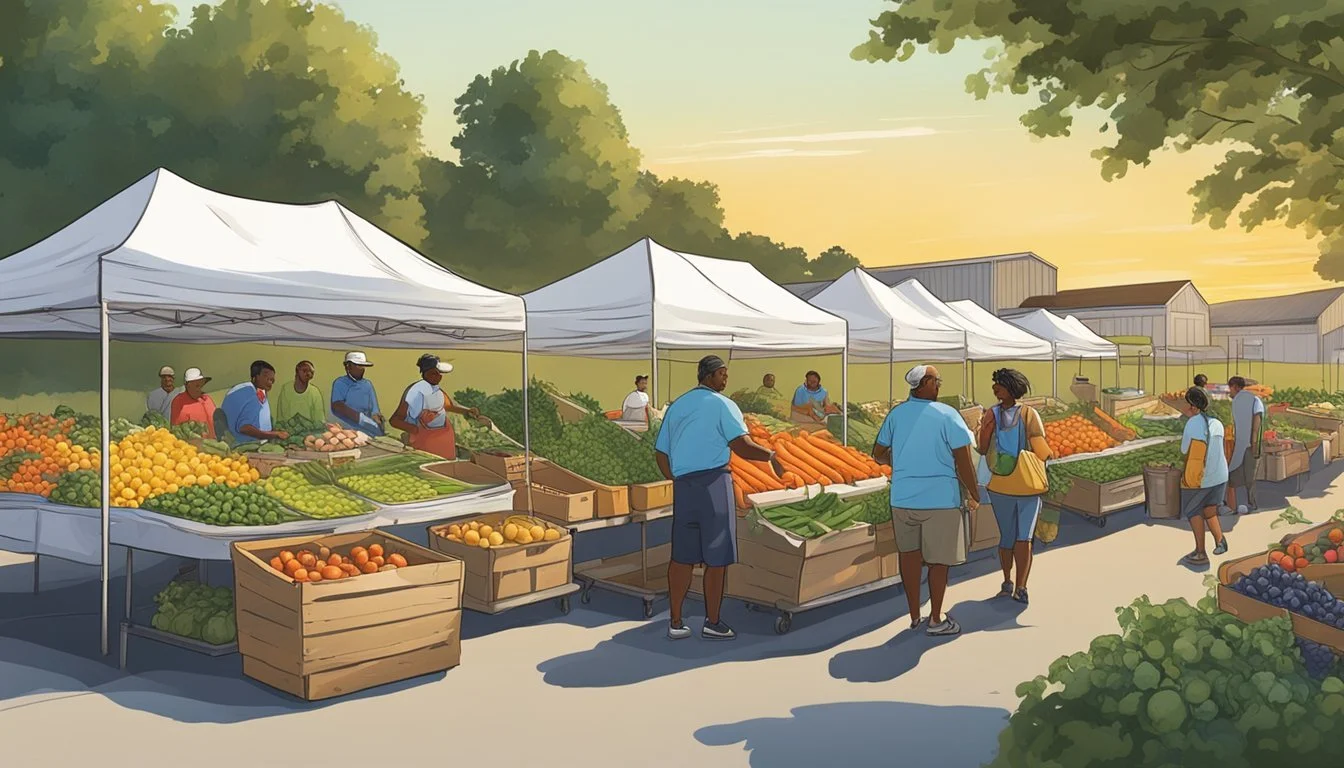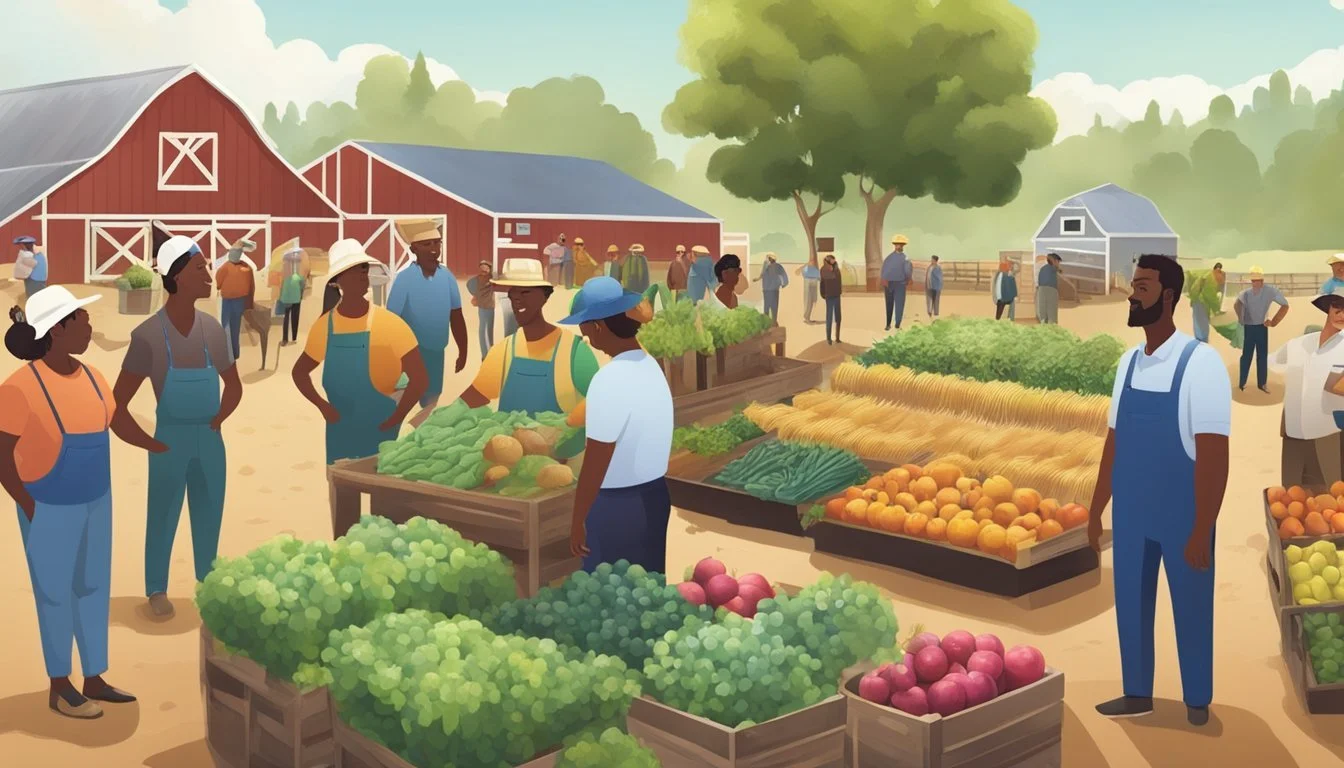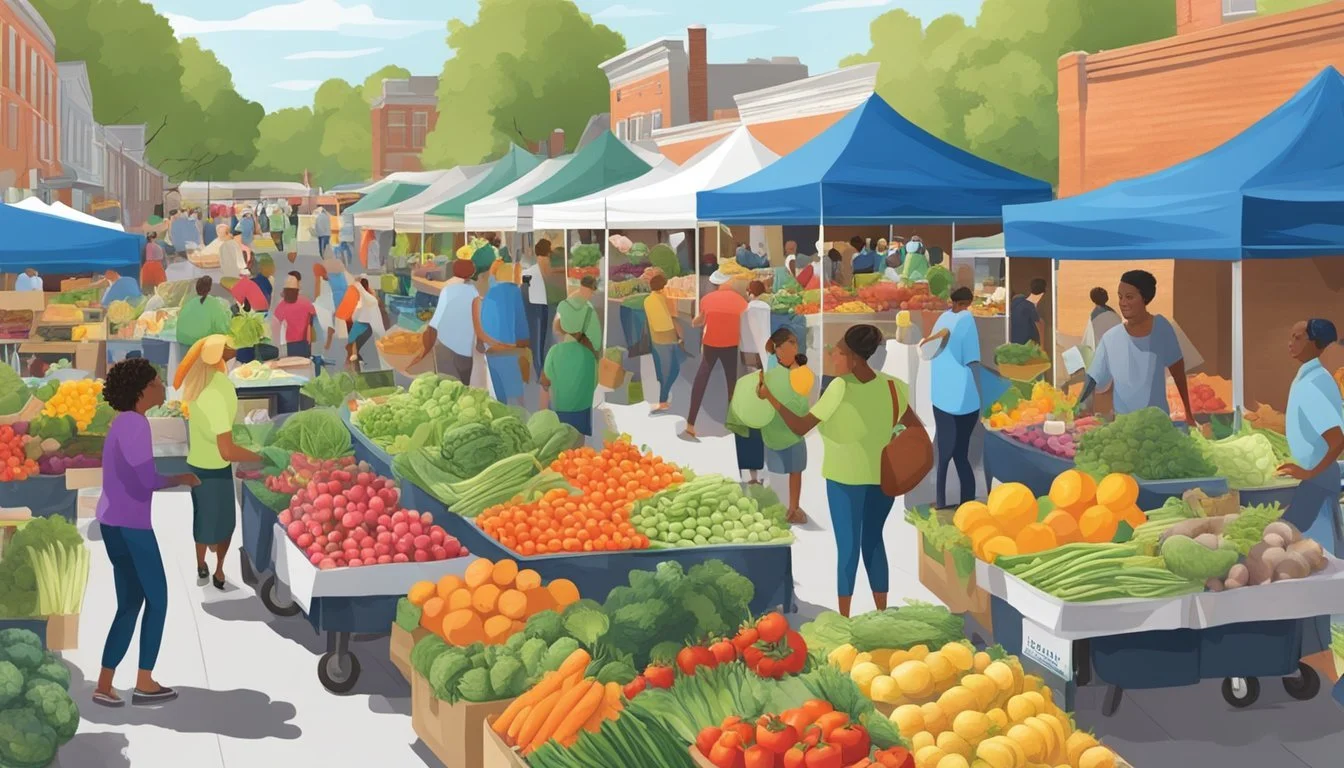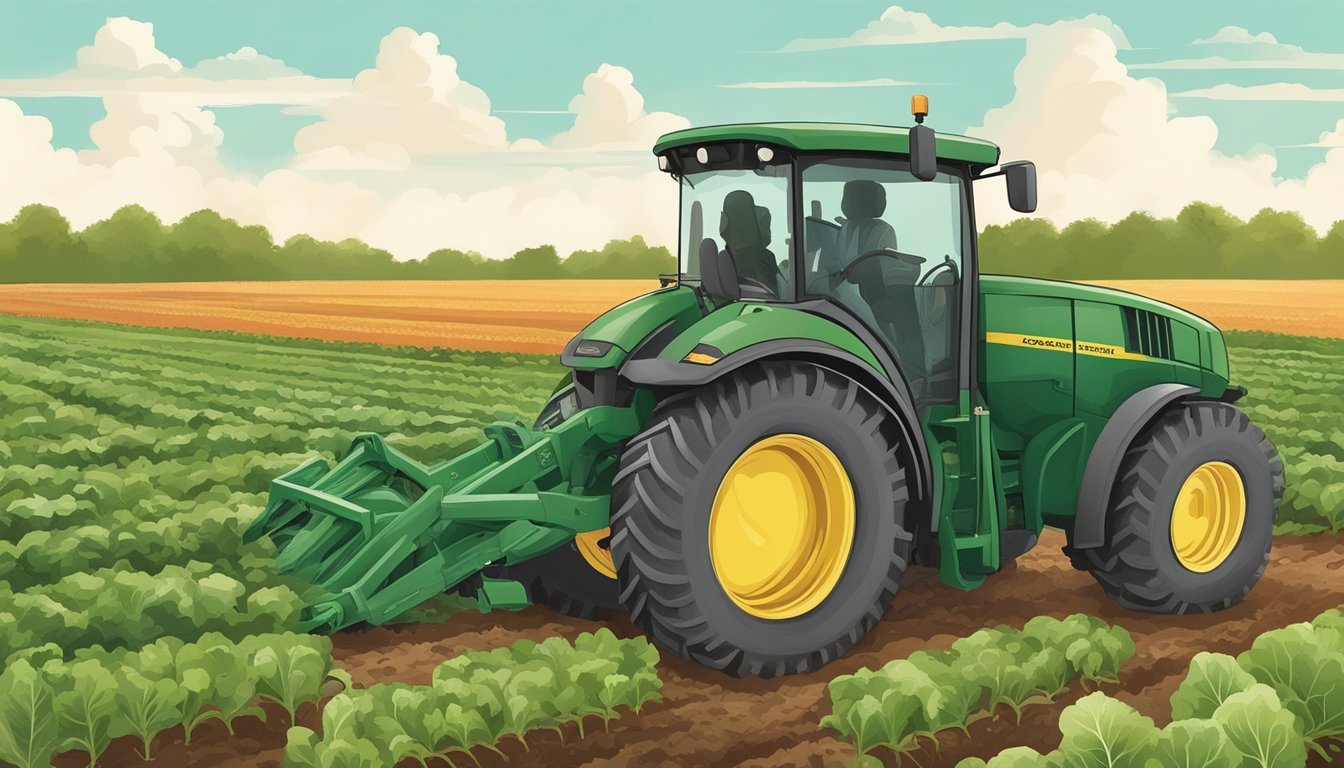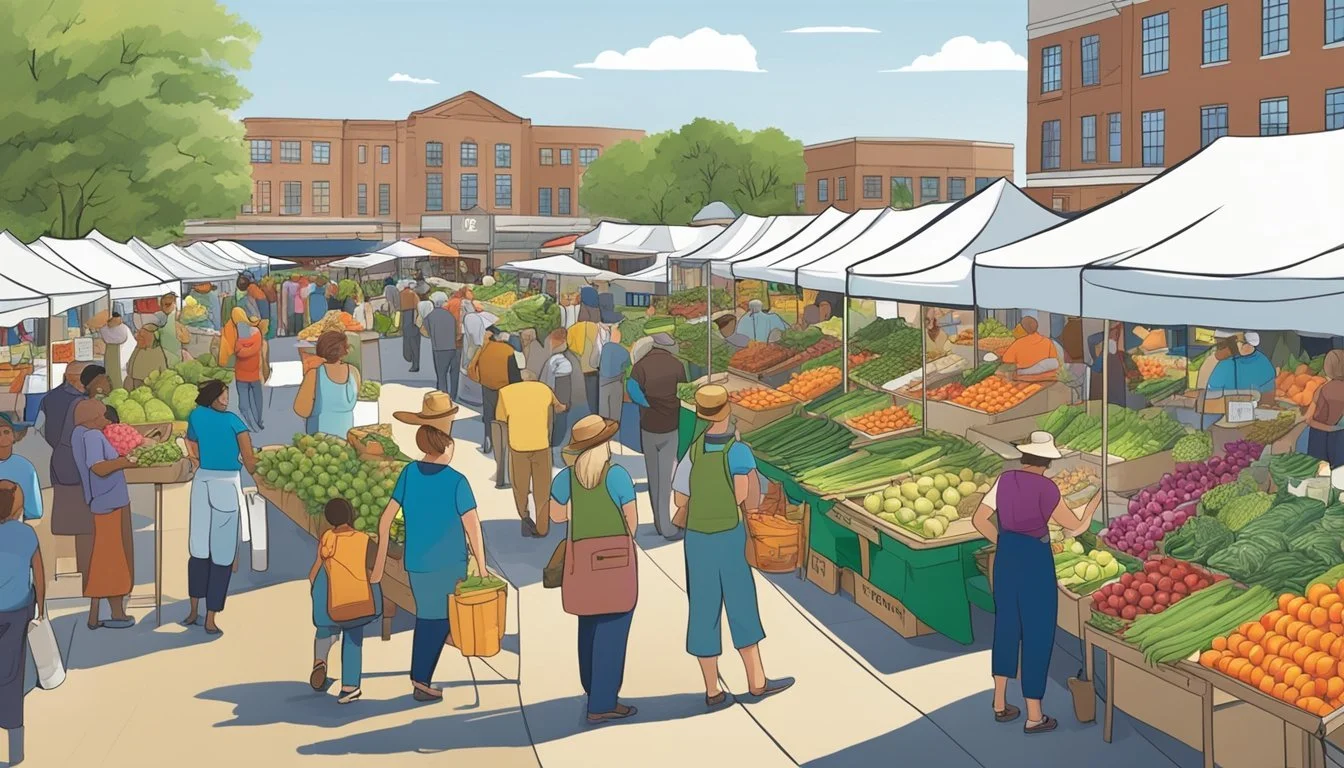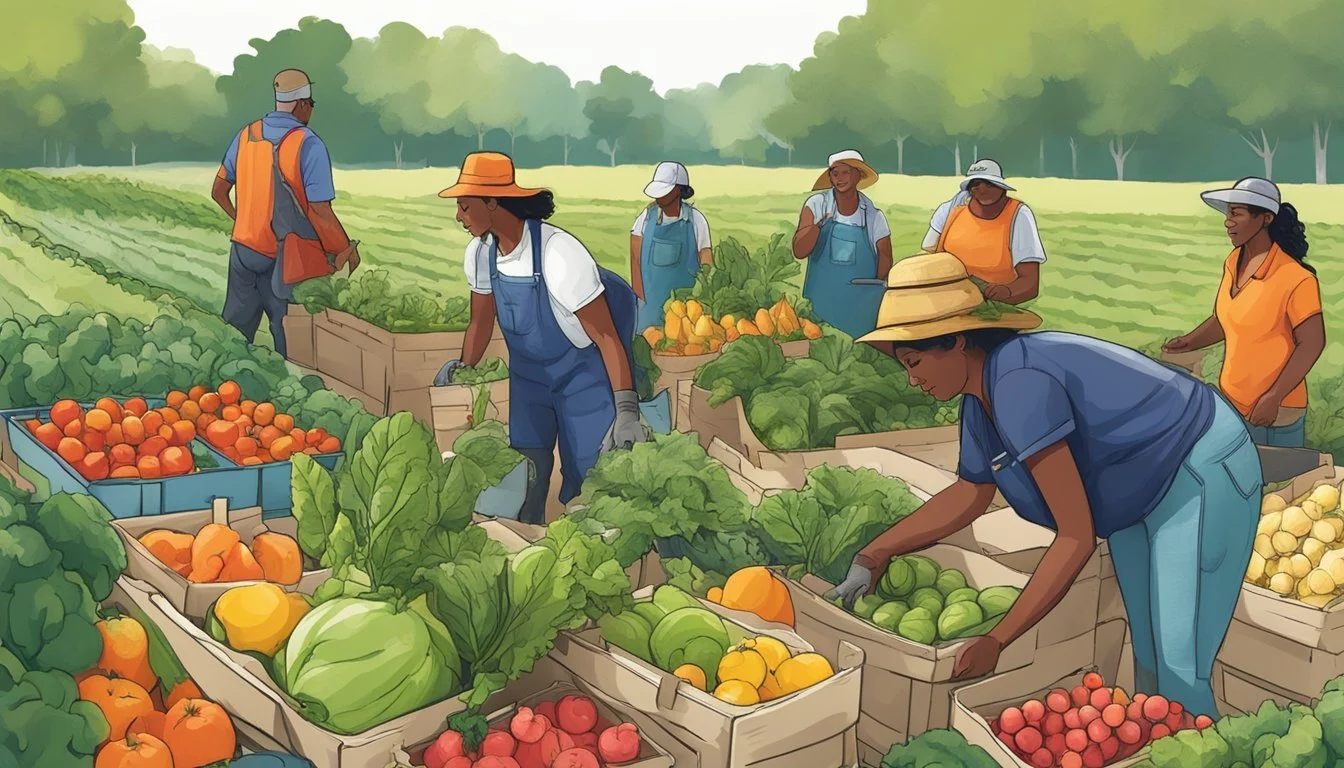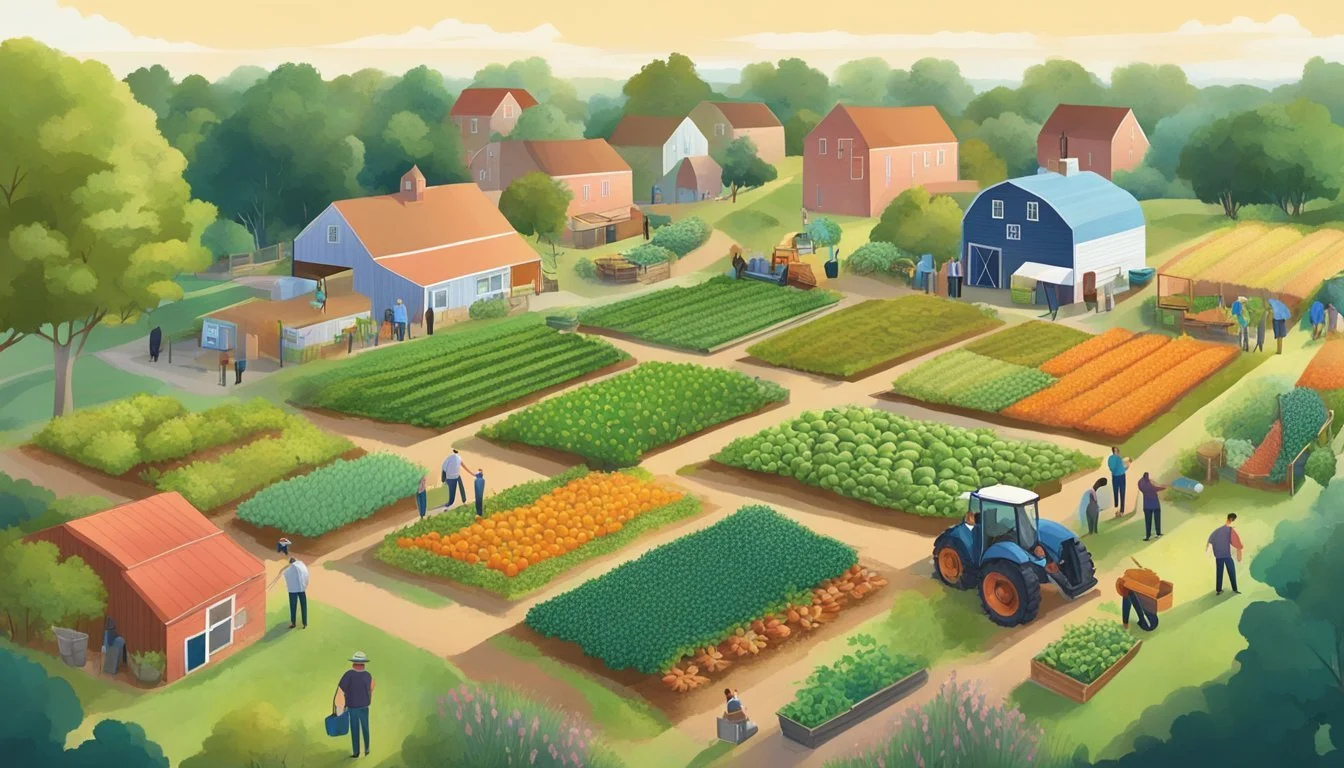Community Supported Agriculture (CSA) in Norfolk, VA
A Guide to Local Farm Shares
Community Supported Agriculture, or CSA, has rooted itself in Norfolk, Virginia, as a key model for supporting local agriculture while providing residents with access to fresh, seasonal produce directly from local farms. This symbiotic relationship allows consumers to purchase shares of a farm's harvest in advance, which in turn offers farmers a level of financial security and direct market access. As the concept of CSA grows in popularity, Norfolk has seen a surge in CSA memberships and farm offerings, with a variety of organic and naturally grown fruits, vegetables, and other farm products becoming available to the community.
Norfolk's engagement with CSAs is a testament to the region's commitment to sustainable agriculture and community health. Enthusiasts of this model enjoy the benefits of knowing where their food comes from, participating in seasonal eating, and immersing themselves in a community-centric food culture. From local farm stands like Skipper Farms to larger, subscription-based programs that run weekly or seasonally, Norfolk offers a diverse array of CSA options for individuals keen on supporting their local farmers while enjoying the bounty of high-quality, fresh produce grown right in their vicinity.
What Is Community Supported Agriculture?
Community Supported Agriculture (CSA) is a partnership model where consumers subscribe to the harvest of a local farm or collective. This subscription is often structured as a prepaid share of the farm’s production, ensuring that consumers receive a periodic delivery of fresh, locally grown produce during the farming season.
Farmers benefit from CSA programs as they provide upfront payment, which helps in planning and reduces the financial risks associated with farming. It also reinforces the local agricultural economy. Consumers, on the other hand, enjoy direct access to nutritious and fresh food, often organically or sustainably grown, establishing a stronger connection to the source of their meals.
A typical CSA model includes:
Pre-season subscription: Consumers purchase their share before the harvest begins.
Regular distribution: Shareholders receive a portion of seasonal produce, usually weekly or bi-weekly.
Farm involvement: Opportunities for consumers to visit the farm and participate in the farming process.
The CSA model fosters community engagement and supports environmental sustainability through reduced food miles. By subscribing to a CSA, consumers in Norfolk, VA, or elsewhere can significantly impact their local food system, contribute to the viability of small farms, and promote a more resilient food ecology.
History of CSA in Norfolk
Community Supported Agriculture (CSA) represents a partnership between consumers and local farms in Virginia, specifically within Norfolk and its surrounding regions. This collaborative approach to farming and food consumption ensures that the community actively participates in supporting local agriculture.
In Norfolk, the CSA model has taken root within the rich soil of local agriculture traditions. Local farms have embraced the system, offering subscriptions to residents who seek fresh, seasonally available produce directly from the source. These subscriptions not only bolster the local economy but also create a symbiotic relationship between farmer and consumer.
Year Milestone in Norfolk's CSA History 1980s Norfolk sees an emergence of CSA programs 1990s Growth in local farm participation 2000s CSA becomes a staple for local consumers seeking fresh produce
The concept of CSA in Virginia closely mirrors the broader North American model, where Norfolk's CSA farms have adapted over time to meet community needs. These adaptations often include expanding share options, incorporating sustainable farming practices, and increasing farm-to-consumer distribution points.
Norfolk's commitment to CSA demonstrates an unwavering support for sustainable farming practices. The region's CSA initiatives allow the community to take an active role in preserving both the environment and local farming heritage, all while fostering a closer relationship between Virginians and the food they consume.
Benefits of CSAs
Community Supported Agriculture (CSA) programs offer a plethora of advantages to both the local community and the environment. A standout benefit of CSAs is the access to fresh, local food. Consumers enjoy seasonal vegetables and produce directly from the farm, which not only supports local farmers but also ensures a supply of natural and peak-flavor foods.
In terms of consumer benefits, CSA subscribers typically receive a diverse array of produce that may introduce them to new vegetables and ways of cooking. This exposure not only diversifies their diet but also enhances their culinary experience with fresh ingredients that are often harvested within a day of delivery.
Advantage Description Freshness CSA produce is often picked at the peak of ripeness, which enhances flavor and nutrition. Support for Local Economy By participating in a CSA, members directly support local farmers and their operations. Sustainability Since the food doesn't travel far, CSAs generally have a lower carbon footprint compared to traditional grocery store produce. Community Engagement CSAs foster a sense of community through shared risk and volunteer opportunities at local farms.
To the farmers, CSAs provide a reliable upfront income and the ability to plan their crops with the confidence of guaranteed sales. This financial stability is foundational in maintaining the vitality of small-scale agriculture and preserving farming as a viable livelihood.
Moreover, CSAs help bind the community together. Many programs encourage or require members to spend time on the farm, fostering ties between consumers and those who grow their food, and cultivating an appreciation for the agricultural process.
How CSAs Work
Community Supported Agriculture in Norfolk, VA functions through a symbiotic relationship where customers pay in advance for a share of the harvest, securing them a season-long supply of fresh produce from local farms.
Membership and Fees
Memberships are established through an upfront fee that individuals pay to a CSA farmer. This payment, which can vary in amount, supports the farm's operational costs for the season. In exchange, members typically receive weekly or bi-weekly shares of the farm's bounty. Various payment plans may be available to accommodate different budgets.
Seasonal Produce and Offerings
CSAs focus on providing a rotating selection of seasonal produce. Members can expect a diversity of fresh vegetables and fruits, reflecting what is currently being harvested. Some CSAs may also include other farm products such as eggs, dairy, and meats. The offerings might differ from one farmers market to another but generally adhere to what can be grown or produced locally.
Spring might feature lettuce, strawberries, and asparagus.
Summer shares could include tomatoes, peppers, and melons.
Autumn may bring pumpkins, apples, and root vegetables.
Subscription Models
Subscription models for CSAs generally fall into two main categories:
Traditional Model: Members receive a predetermined share of produce throughout the season, with the contents dictated by the week’s harvest.
Market-Style Model: Members have some degree of choice in the items they receive, akin to shopping at a farmers market.
In both models, members bear some risk—such as reduced variety during a bad crop year—but also reap the rewards of bumper crops. These models reinforce the mutual commitment between the community and their farmers.
Local CSAs in Norfolk
Community Supported Agriculture (CSA) programs in Norfolk, Virginia, represent a commitment to fresh, locally grown produce. Residents can subscribe to receive seasonal products from area farms, fostering community relationships and supporting local agriculture.
Dayspring Farm
Dayspring Farm serves the community by providing a variety of organic vegetables and fruits through its CSA programs. Focused on sustainable and chemical-free farming practices, the farm enriches local food systems and offers members a taste of the region’s seasonal bounty.
Location: Near Norfolk, VA
Season: Spring through Fall
CSA offerings:
Vegetables: A broad range of organic vegetables
Fruits: Seasonally available fruits
Pick-up locations: Multiple convenient pick-up points
Contact: Subscription inquiries are welcomed through their primary contact channels.
Cologne CSA Project
The Cologne CSA Project, situated in the broader Norfolk region, specializes in directly connecting Old Dominion University (ODU) and surrounding neighborhoods to an assortment of fresh, locally sourced farm products. The project promotes food security and provides educational opportunities regarding sustainable agriculture.
Location: Cologne, VA
Membership: Open to ODU affiliates and general public
CSA details:
Produce: Seasonal, locally grown fruits and vegetables
Distribution: Weekly boxes available for members
Benefits: Members benefit from fresh produce while supporting local farms and educational programs.
Understanding CSA Farming Practices
Community Supported Agriculture (CSA) in Norfolk, VA, embraces sustainable agriculture techniques focused on producing a bounty of seasonal crops while considering local climate and weather patterns. CSA farmers meticulously map out the growing season, aligning plantation schedules with Norfolk's temperate conditions. Commitment to seasonality ensures that members receive the freshest produce at its peak flavor.
Farming within a CSA model involves strategic crop rotation and soil enrichment practices to maintain a healthy ecosystem. Soil fertility is a crucial indicator of a farm's sustainability and is often enhanced using organic matter, such as compost, to avoid synthetic fertilizers.
Many CSA farms adhere to the following sustainable practices:
Crop Rotation: Prevents soil depletion, reduces pests and diseases, and improves crop yield.
Integrated Pest Management (IPM): Employs natural pest control methods, reducing the need for chemical pesticides.
The CSA structure in Norfolk can be summarized in the following points:
Local Nurturing: Farmers tailor their cultivation strategies to thrive within Norfolk's unique environmental conditions.
Community Engagement: Shareholders, in essence, invest in their local farm's success, creating a tight-knit agricultural community.
Seasonal Shares: Members typically receive a weekly or biweekly allotment of fresh produce correlating with the regional harvest calendar.
By acknowledging regional nuances such as local weather events, Norfolk's CSA farms demonstrate resilience, ensuring they meet the needs of their subscribers throughout the fluctuating growing season. This approach cultivates a harmonious relationship between individuals and their food, fostering a deeper appreciation for the seasons and sustainable farming's role in the local community.
Economic Impact of CSAs
Community Supported Agriculture (CSA) models exhibit a positive economic impact on the local economy of Norfolk, VA. By directly connecting farmers and consumers, CSAs circumvent the need for traditional distribution channels, reinforcing the local food system and stimulating local spending. Farmers in and around Norfolk benefit from a stable market for their produce, with CSA memberships providing a predictable income stream. This financial stability can contribute to farmers investing in their operations and employing local labor.
In Virginia, direct marketing through CSAs also empowers consumers to invest in their local economies. Money spent on CSA shares stays within the community, as opposed to being dispersed through national or global supply chains. The focus on a market-style approach to distribution means that Norfolk markets become hubs for local commerce, bolstering nearby businesses as well.
The following are ways in which CSAs impact the local economy and direct marketing:
Strengthened Supply Chains: Less dependency on long-distance transportation and reduced shipping costs.
Financial Security for Farmers: Upfront payments for CSA shares enhance farmers' ability to plan and budget.
Local Economic Circulation: Money spent on CSA shares supports local agriculture and often recirculates within the local community.
The model further encourages a rapport between consumers and farmers, fostering community ties and enhancing market opportunities. While individual CSAs in VA vary, the overarching shift towards direct marketing within the CSA framework proposes a sustainable and resilient local economic landscape.
Challenges and Solutions
Community Supported Agriculture in Norfolk, VA navigates through diverse dilemmas, from climate unpredictability to an increasingly competitive marketplace. Effective strategies are key for CSAs to maintain resilience and thrive.
Weather and Climate Risks
Norfolk's CSA operations encounter challenging weather fluctuations and climate-related setbacks. Strategies deployed include:
Diversification of Crops: A variety ensures that some produce thrives in adverse conditions.
Greenhouse Farming: To mitigate weather impacts, CSAs use greenhouses for consistent year-round production.
Market Competition
The market for CSAs in Norfolk is competitive, with several farms vying for consumers' attention. Solutions they implement are:
Unique Offerings: Differentiation through rare produce varieties or organic certification attracts niche markets.
Marketing Efforts: Enhanced community engagement through social media and local events builds brand loyalty and customer retention.
Supply Chain and Distribution
Distribution complexities and supply chain efficiency remain at the forefront of Norfolk's CSA challenges. Effective approaches include:
Direct Delivery Models: Many CSAs opt for direct-to-doorstep delivery to offer convenience and expand their customer base.
Drop-off Points: Select strategic locations across Norfolk enhance accessibility for subscribers who prefer to pick up their shares.
Through proactive approaches, Norfolk's Community Supported Agriculture adapts and evolves in the face of prevailing challenges.
Community and Educational Roles of CSAs
Community Supported Agriculture (CSA) initiatives in Norfolk, VA, bolster the connection between local residents and the food they consume. They foster a network of relationships that educate and engage community members in sustainable agriculture practices.
Educational Roles:
CSAs often partner with educational institutions such as Old Dominion University (ODU) to provide students with hands-on learning experiences in agriculture.
Educational events hosted by CSAs offer insights into the importance of local food systems, cooking tips, and nutritional information.
Workshops and farm visits enlighten participants on ecologically sound farming methods and the significance of supporting local producers.
Community Impact:
CSAs strengthen community bonds by creating a sense of shared investment in local agriculture.
They facilitate direct relationships between consumers and farmers, thus enhancing community support for local food systems.
CSA subscribers receive regular shares of produce, often accompanied by newsletters or pamphlets, providing cooking tips and advice on how to utilize in-season produce effectively.
By offering food at more accessible prices and educating consumers about food origins, CSAs play a vital role in rekindling a community's connection to their food sources.
In summary, the community and educational roles of CSAs in Norfolk are multifaceted, promoting ecological awareness and food literacy while fostering robust local networks of producers and consumers. Through education and active participation, they help forge a sustainable future for both the community and the environment.
Future of CSAs in Norfolk
In Norfolk, VA, the trajectory of Community Supported Agriculture (CSA) reflects a blend of tradition and innovation. The CSA model, which cultivates direct partnerships between farmers and consumers, anticipates a resurgence.
Trends: Consumers are increasingly valuing local, sustainable food sources. With growing environmental concerns, CSAs in Norfolk are likely to gain popularity due to their carbon footprint reduction compared to traditional grocery shopping.
Innovation:
Technology Integration: Digital platforms for subscription management and produce selection.
Flexible Models: Tailoring share sizes and pick-up locations to accommodate diverse customer needs.
Consumer Preferences: Seasonal eating and support for local farms are strong drivers. Customizable shares may become more prevalent to cater to individual preferences.
Local Impact:
Economic: Strengthened local economy through direct support of Norfolk farmers.
Community: Enhanced sense of community and shared commitment to food sustainability.
Norfolk's CSAs are poised for significant growth as they adapt to changing markets and consumer desires. The focus remains on fostering relationships between residents and farmers, ensuring access to fresh, high-quality produce.

